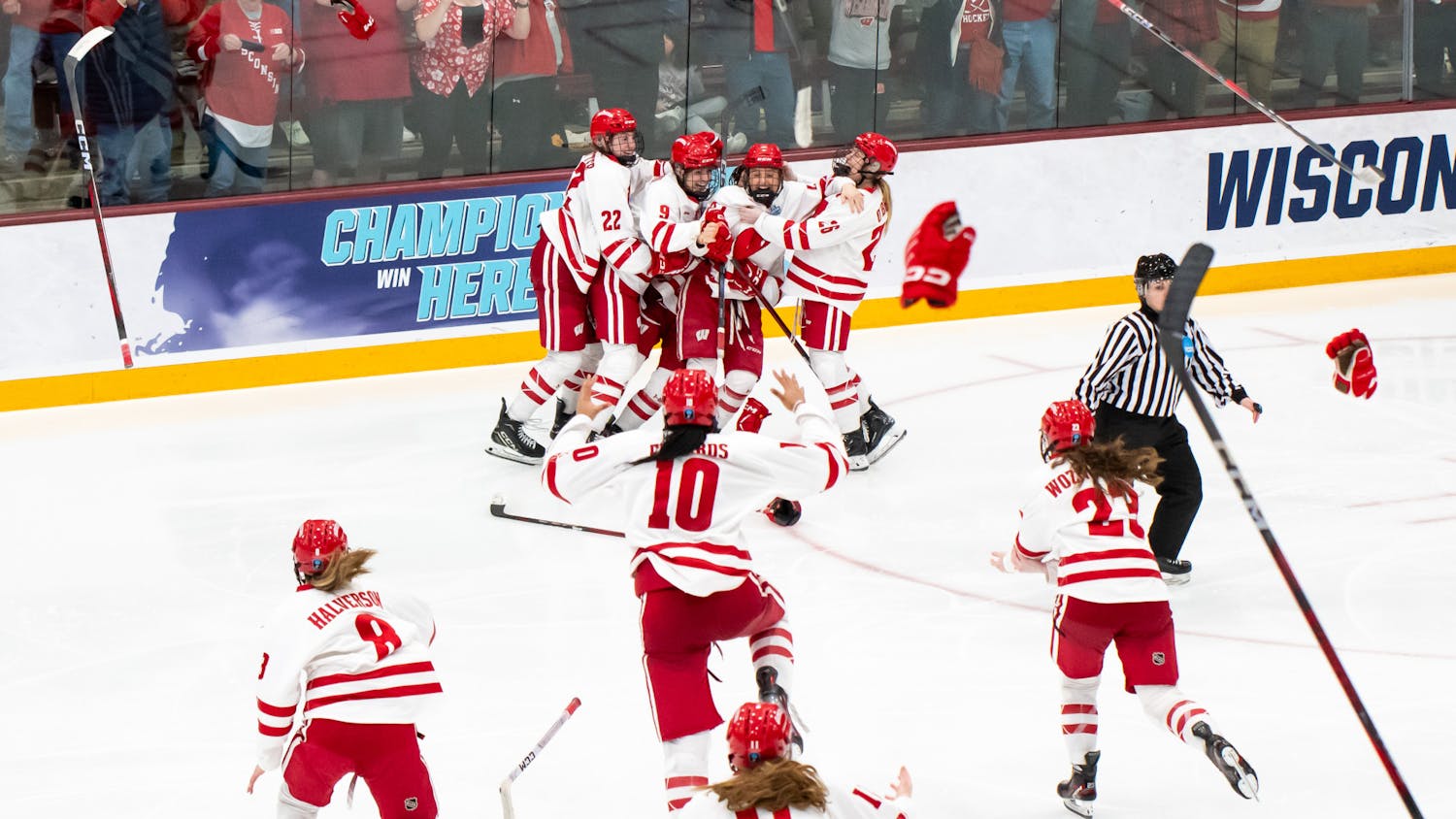As one of Wisconsin’s highest elected positions, you wouldn’t expect the Secretary of State’s office to be tucked away in the basement. But for years, Secretary of State Doug La Follette and his two staff completed the few duties they had left underground, far from the grandeur of the Capitol’s main floors.
At age 82, La Follette is one of Wisconsin’s oldest politicians. He has a long public service career, first running for the U.S. House of Representatives in 1970, then being elected to serve as a state senator from 1972 to 1974 before becoming secretary of state. He’s occupied the office for 44 years and is seeking another four-year term this November.
La Follette’s name is one of the most recognizable in Wisconsin politics thanks to Robert "Fighting Bob" La Follette, a former governor and U.S. Senator who built Wisconsin’s progressive reputation in the early 20th century. He’s not entirely sure, but Doug La Follette’s research says he is a “first cousin, twice-removed” to Robert La Follette.
Doug La Follette has seen his role diminish during his tenure as secretary – a trend that explains his basement office. His role is largely limited to authenticating official state documents and other bureaucratic tasks.
“I can do the office with both hands tied behind my back, and it’s not a very exciting thing if you like to do stuff,” La Follette told the Washington Post earlier this year.
But with secretary of state elections taking center stage thanks to former President Donald Trump’s unfounded claims of voter fraud during the 2020 elections, what’s normally a sleepy election is coming alive in Wisconsin.
“Look what happened in the last election. There were serious efforts to convince [election officials] in Georgia, Arizona, Michigan, Pennsylvania and Wisconsin,” La Follette said, recalling Trump’s attempt to overturn the legitimate 2020 election. “Fortunately, those secretaries of state [and Wisconsin’s commission] resisted that. That’s why it’s a bad idea to have an elected person in charge.”
History of the office
Before he ran for elected office, La Follette was an environmentalist and founder of the “Wisconsin’s Environmental Decade” advocacy group, now known as Clean Wisconsin. He originally ran for office to promote his passion for the environment in government.
“A lot of good things were happening in the ‘70s, so I thought the secretary of state’s office would be a statewide office where I'd be able to communicate with all the people in Wisconsin and talk about the important environmental issues which we had to deal with,” La Follette said.
By the time La Follette assumed the role in 1975, many of the office’s original responsibilities had already been shifted to other state agencies. The secretary still maintained ample power and a full staff of 50 employees, but that changed in the 1990s when then-Republican Gov. Tommy Thompson allocated much of the office’s powers to other state agencies.
La Follette says Thompson’s motivation was “not personal.”
“It was just his desire to accumulate power. He wanted to control everything,” La Follette said. “In fact, as a demonstration of that, he stripped away about 75% of the responsibility from the secretary of state.”
Now, Wisconsin’s secretary of state has the least amount of power among all states that directly elect the position, according to a 2021 Council of State Governments report. La Follette does not see a clear path to restoring the office’s powers with the current Republican legislature.
“I think it's probably very unlikely because the Department of Financial Institution (DFI) exists,” La Follette said. “You'd have to break up DFI. I put together a proposal to do that, which I think is very reasonable, but I've not been successful at getting the Republicans to pass such a plan.”
A ‘very important election’
This year’s secretary of state election could have an outsized impact on the future of elections in Wisconsin.
La Follette’s opponent in the Nov. 8 election, Rep. Amy Loudenbeck (R-Clinton), has called for election administration responsibilities to be transferred from the nonpartisan Wisconsin Election Commission (WEC) to the secretary’s office — a move La Follette called “a very bad idea.”
Republican Gov. Scott Walker created the WEC in 2016 after signing a bill that abolished the Government Accountability Board, Wisconsin’s previous nonpartisan elections and ethics board. Though the new WEC is partisan, it maintains a balance of three Republicans and three Democrats, each of whom are appointed to five-year terms.
But with Republicans accusing states of aiding voter fraud during the 2020 election despite lacking evidence, according to the New Yorker, the WEC is on the chopping block as part of a nationwide Republican push to gain control over state elections before the next presidential election in 2024.
La Follette worries Republicans could do “very radical things” if they win both the governor and secretary offices, including dismantling the WEC.
“If it’s a close election … [Republicans] can void the results and allow the legislature to make the decision, who could then change the election in favor of a different candidate, such as Mr. Trump, if he chooses to run,” La Follette explained.
Midterm election turnout is significantly lower than turnout for presidential elections. But with the secretary of state and other offices playing a critical role in election security, La Follette believes it’s “critical” that Wisconsinites — especially young ones — vote this November.
“This is a very important election,” La Follette said. “Not only because of the secretary of state’s office… but also for Wisconsin, for many issues, whether it be educational funding, a women’s right to choose [or] many environmental issues.”
Ian Wilder is a sports editor for The Daily Cardinal. He's covered the men’s hockey beat, and has written in-depth about state politics and features. Follow him on Twitter at @IanWWilder.





